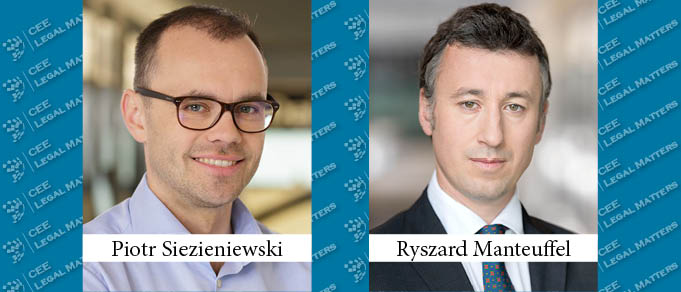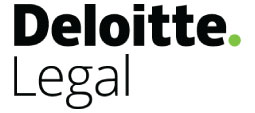The global pandemic has impacted all markets, with subsequent ramifications for M&A. Investors are now seeking greater protection against general lock-downs and supply-chain disruptions, while governments aim to protect critical supplies and services by imposing new regulations on foreign investment in crucial or strategic industries.
If you are considering investment opportunities in Poland, take a look at this overview to get insight into the regulations on foreign investment in strategic industries.
The following overview is an extract from the Foreign Direct Investment in Central Europe publication, which gives insight into the regulations on foreign investment in strategic industries in the region.
Have FDI screening rules been implemented (or will they be implemented) in the country?
Yes. The new law on investment control is part of the government's Anti-Crisis Shield 4.0. These regulations were adopted as a result of the COVID-19 pandemic and the risk of taking over Polish companies that are crucial for public order, safety or health. New investment control regulations came into force on 24 July 2020.
Definition of FDI
FDI is defined as a transaction made by foreign investor resulting in the acquisition, achieving substantial shareholding or acquiring dominance of protected entities.
Protected entities are undertakings based in Poland that are crucial for maintaining public safety, order and health, inter alia
- conducting business activities related to: power, gas, fuels, telecommunications, food processing, manufacture of medicines, chemicals and fertilizers, explosives, weapons and ammunition, as well as military and/or police technologies;
- developing software for core services for society, such as energy, fuels, water supply, cash supply, card payments, hospitals, sales of prescription drugs, transport and food supply, and
- public companies regardless of the type and sector of activity;
- the prerequisite for protection is also a sufficiently high revenue of the company – it must exceed the equivalent of EUR 10 million in Poland in one of the two financial years preceding the intention to take it
Substantial shareholding is defined as:
- ownership of shares or stocks representing at least 20% the total number of votes, or
- holding a participation in a partnership of at least 20% of the value of all contributions made to that partnership, or
- holding a share in the profits of another entity of at least 20%;
Dominance position occurs when an entrepreneur has the power to decide on the direction of the activities of another entity, in particular in which it holds, directly or indirectly through other entities, a majority of the total number of votes in the bodies of the other entity or has the power to appoint or dismiss a majority of the members of the management or supervisory bodies.
The Act lists three main cases in which significant shareholding is acquired or achieved, namely:
- obtaining a significant shareholding in an entity covered by protection by acquisition shares or stocks or rights attached to shares or stocks, or taking up shares or stocks, or
- reaching or exceeding the thresholds of 20% and 40% of the total number of votes respectively in the body constituting the protected entity, a share in the entity's profits of the protected person or a shareholding in a partnership which is a protected entity in relation to the value of all contributions made to that company by acquiring shares or stocks or rights attached to shares or stocks, or taking up shares or stocks, or
- acquisition or lease of an enterprise from a protected entity, or its organized
The acquisition of dominance is achieved through:
- acquisition of shares or rights attached to shares or rights from shares or rights or taking up shares or stocks, or
- conclusion of an agreement providing for the management of that entity or the transfer of profit by that entity
Definition of foreign investor
According to the Regulation, a foreign investor is the following:
- a natural person who does not have Polish nationality;
- a legal person who has not or has not had, for at least two years from the day preceding the notification of the transaction, a registered office in the member state of the EEA or the OECD who intends to make a transaction that falls within the scope of the regulation.
Do the following scenarios trigger the screening?
1. Acquisition of 10% or more of voting rights in the company: Yes (20% or more)
2. Establishment of a new branch: No. The regulation does not explicitly address whether the establishment of a company or its branch also falls within its scope, however it provides that transactions are exempt from the approval requirement where the target’s turnover derived from sale of products and services does not exceed EUR 10 million in the territory of the RP.
3. The production of new products: No
4. Establishment of a new company in which foreign investor will have more than 10% voting rights: No. The regulation
does not explicitly address whether the establishment of a company also falls within its scope, however it provides that transactions are exempt from the approval requirement where the target’s turnover derived from sale of products and services does not exceed EUR 10 million in the territory of the RP.
5. The transfer of use or operational rights in infrastructure or assets that are indispensable for the operation of strategic companies: Not explicitly, however acquisition or lease of an enterprise from a protected entity, or its organised part (which may include transfer of assets) falls within the scope of regulation
6. Other screening triggers: The screening shall be triggered by direct acquisition as well as by indirect (inter alia, made by a subsidiary of the entity or by an undertaking whose statutes or other act governing its operation contains provisions relating to the right to its asset for the benefit of the entity or acquisition made by an undertaking in its own name yet on behalf of another entity) or follow-up acquisition (the acquisition of substantial shareholding or dominance is an outcome of the following:
- redemption of shares or stocks in the protected entity or acquisition of own shares or stocks in that entity,
- dividing the protected entity or merging it with other undertaking,
- amendments to the agreement or statutes of the protected entity with respect to the preference of shares or stocks, participation in profits, establishment or change or abolition of rights vested in individual shareholders or participants of that entity)
Deadline for notification of the relevant screening body
Where an entity intends to acquire or achieve a substantial shareholding or dominance, and in the case of indirect acquisition, the notification shall be made before the conclusion of any agreement giving rise to an obligation to acquire or achieve a substantial shareholding or dominance, or before any other legal act or acts leading to the same (intended) effect. In case of follow-up acquisition, the notification needs to be filed within 7 days of the date of acquisition of substantial shareholding or dominance or, if it is not possible to determine the exact moment, within 30 days. During the whole process legal representation by a Polish attorney at law is mandatory.
Screening procedure
The procedure is split into two phases:
- The first phase called preliminary verifying procedure is intended to distinguish between simple cases that do not require further examination and more complex ones. This phase is to last up to 30 days. It is expected that most of the cases will be completed in this phase. In such cases, the President of the Office of Competition and Consumer Protection will issue a notice of non-opposition. The Office shall strive to conclude cases that do not raise doubts as soon as
- Only a small number of specific cases will be referred to the appropriate control procedure (phase two), i.e. those that may pose a major threat to public order, public security or public health. According to the Office's guidelines, this shall refer to situations where, for example, there is a risk that an undertaking of substantial value for public interest might be forced to move abroad, close down its plant, siphon technologies or that this entity's business operations might be compromised otherwise. This phase of the procedure is to last a maximum of 120 days.
Screening decision
Within 30 working days of the initiation of the proceeding, the President of the Office of Competition and Consumer Protection (UOKiK) shall issue:
- a decision refusing to initiate control proceedings and not objecting to acquiring or achieving significant participation or dominance, or
- the decision to initiate an inspection
Control proceedings conducted by UOKiK shall end with the issuance of a decision authorizing or opposing the acquisition or achievement of a significant shareholding or acquisition of dominance over the protected entity, including in the case of indirect or subsequent acquisition.
Are fines or other penalties prescribed due to failure to notify the FDI?
Achieving or acquiring a significant shareholding or dominance in a protected undertaking without filing a notification or despite the President of UOKiK's objection will be null and void by law. This will also be subject to a fine of up to PLN 50 million and to imprisonment from 6 months to 5 years. Sanctions may also be ordered in combination.
By Piotr Siezieniewski, Partner, and Ryszard Manteuffel, Partner, Deloitte Legal


